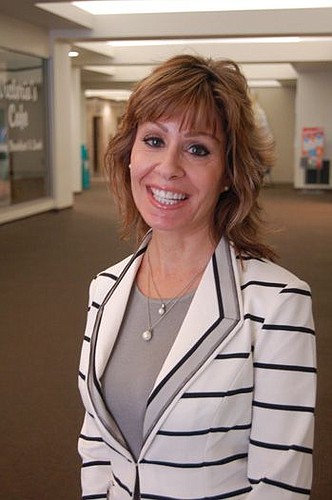
With a degree in English, Diane Tropia was thinking about going to law school.
But a friend suggested that being a court reporter would be a job with flexible hours and plenty of time off.
It hasn’t worked out that way.
“I work seven days a week and I love it,” she said last week while setting up to transcribe the proceedings of the Jacksonville Historic Preservation Commission.
The Long Island, N.Y., native studied at the New York School of Court Reporting, where graduation is based on being able to transcribe 225 words a minute with 95 percent accuracy.
“Most people take three years to finish, but I did it in two,” said Tropia.
With her certificate in hand and a desire to leave cold winters, she moved in 1995 to Jacksonville and quickly discovered her skills were in demand.
“Everywhere I walked in, I got a job,” she said.
In addition to transcribing depositions for attorneys, one of her first clients was City Council.
Taking the notes at city meetings has since expanded to include the Planning Commission, Downtown Investment Authority and the Jacksonville Historic Preservation Commission.
“I love the people aspect of what I do. I get to meet fascinating people,” said Tropia.
She also includes professors on that list.
Besides her traditional transcription work, Tropia is a Computer Aided Real Time Translation provider at the University of North Florida.
She attends classes with deaf students and takes notes for them that are transmitted via Bluetooth from her writer to the students’ laptops. She takes down everything the instructor says as well as questions from students to create a complete record.
That allows students to keep up in class and have a verbatim record of everything that was said.
Tropia has worked with students in majors from information technology to biology and genetics.
“I have to study like they have to study because I have to know all the terminology. The kids rely on me to take good notes if they’re going to graduate,” she said.
When she’s not billing for her time, she proofreads her work and confirms its accuracy by listening to an audio recording of the meeting or deposition.
“I have to make sure it’s completely accurate because my name is on every page,” she said.
Between city government, the work she does for attorneys and her two-day-a-week class schedule, every day is different and that suits her.
“If I had to work in an office every day, I’d be bored to tears,” Tropia said.
Her diverse schedule keeps her working in different places every day and she witnesses and records significant events.
Her work provides a contrast ranging from testimony in medical malpractice and personal injury lawsuits, to administrative hearings and helping students earn a degree.
“One day, I’m intimately involved in somebody’s worst day and the next day, I’m helping a student graduate from college,” said Tropia.
When she’s not working a billable hour, she watches the C-SPAN cable television network and transcribes government hearings in order to practice her craft.
“To make a good living, you have to put in the hours,” Tropia said. “I stopped keeping up with how many hours I do this every week. I’m sure it’s at least 70, but that’s OK because I just love my job.”
(904) 356-2466